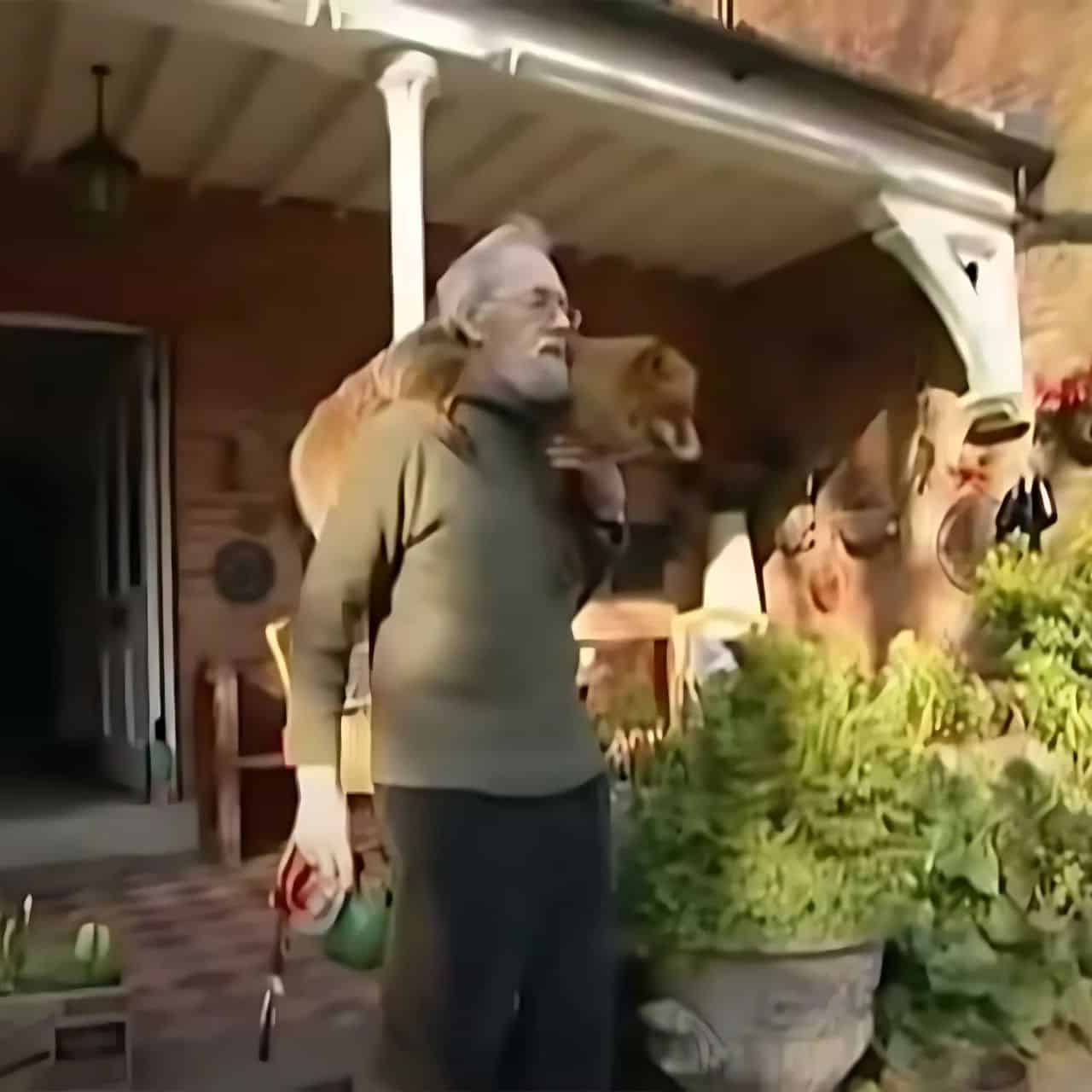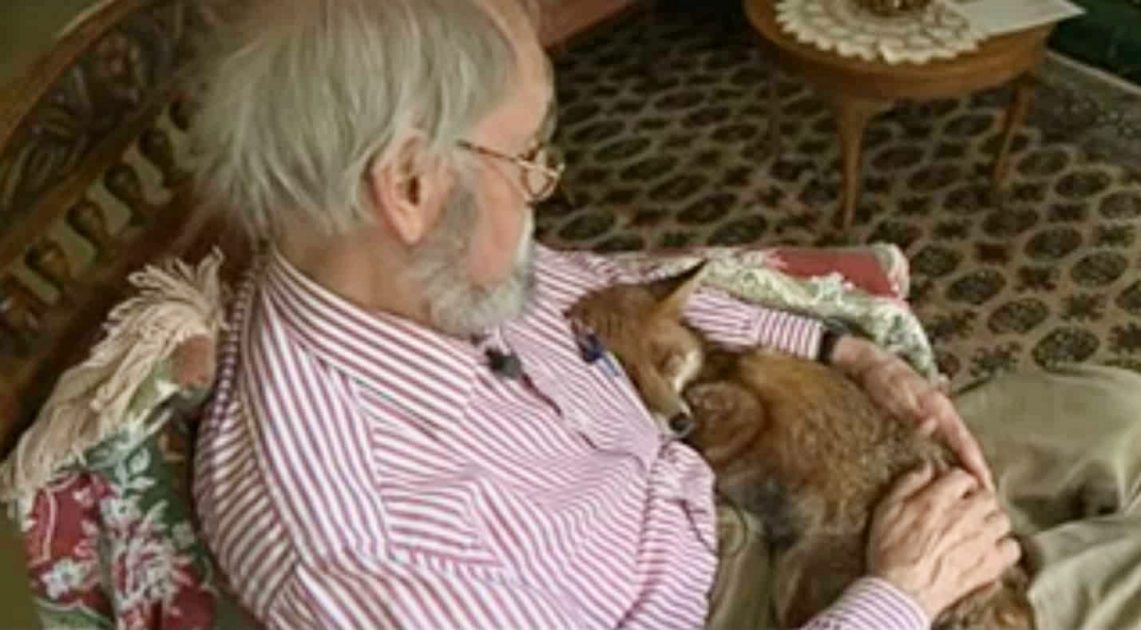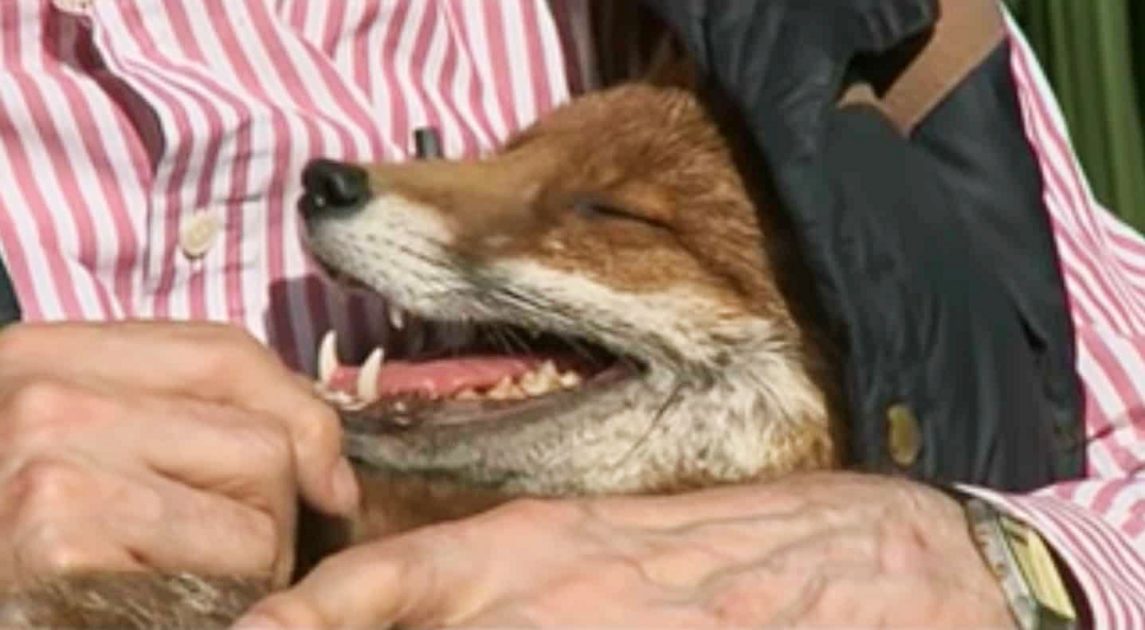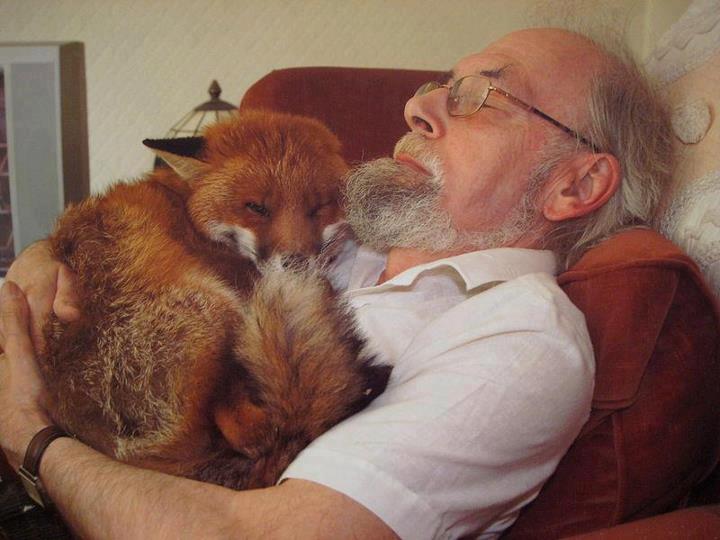Most people think of dogs and cats when it comes to animal companionship. But in Tunbridge Wells, England, one man’s closest companion was a fox — an animal typically considered untamable. This is the story of Cropper, a wild fox rescued from the edge of death, and the retired engineer who gave him a second chance at life.

Found by the Roadside
Cropper was discovered by The Fox Project, a wildlife charity and deterrence consultancy founded in 1991. He had been attacked by a dog, leaving him badly injured, weak, and barely able to move. After rescuing him from the roadside, the charity’s veterinary team diagnosed him with toxoplasmosis — a parasitic infection that affects the nervous system and impairs coordination. Due to the severity of his condition, it was clear Cropper could not be returned to the wild.
The Fox Project operates a wildlife hospital that admits and treats more than 700 foxes and 250 cubs each year. While many patients eventually recover and are released, others like Cropper face a different fate. The staff was left with two options: euthanize him or find someone qualified and willing to provide lifelong care.
The Unlikely Foster
Mike Trowler, a retired engineer, stepped forward. Known locally for his experience working with foxes, Mike had spent years observing their behavior and caring for injured animals. He wasn’t new to the challenges of wild animal rescue. He’d raised orphaned cubs and rehabilitated foxes, gradually releasing them into his expansive nine-acre garden to help them transition back to the wild.
Cropper, however, would stay.
Mike took him in without hesitation, offering not just food and shelter but consistent medical care and companionship. Under Mike’s watch, Cropper began to recover. He regained his appetite, settled into a daily routine, and formed a surprisingly affectionate bond with his new caretaker.

More Than a Rescue
Inside Mike’s home, Cropper behaved less like a wild animal and more like a domesticated pet. He ate from the dog’s bowl, curled up with the house cats, and went for regular walks in the garden. Most of all, he enjoyed belly rubs, often rolling over in anticipation. Visitors were often startled by how calm and trusting he was. If you didn’t know better, you might have mistaken him for a small, reddish dog.
Their bond deepened over time. Mike treated Cropper with patience and consistency, allowing the fox to move at his own pace. There were no forced interactions — just trust built gradually through mutual presence. Cropper, in turn, sought out Mike’s company and seemed to thrive in the domestic rhythm of their life together.
A Lasting Impact
Cropper lived with Mike for six years, passing away in 2007. Though the fox’s life had begun with trauma and illness, he spent his final years safe, loved, and well cared for.
After Cropper’s passing, Mike continued his rescue work. He later took in Jack, another adult fox with medical issues that prevented his release. Like Cropper, Jack adapted to domestic life, albeit in his own way. He enjoys lounging indoors, tolerates the occasional bath in the sink, and even watches TV beside Mike.

Mike also rehabilitates young cubs. Many are released after growing strong enough to survive independently, but some remain nearby for months or years, returning occasionally for food or rest. His property serves as a quiet sanctuary — part home, part wildlife rehabilitation center.
In addition to foxes, Mike has formed connections with other wild animals. He’s even befriended badgers, including one named Benji who eats from a bowl while Mike holds it and allows him to pet her. These moments speak to the gentle and consistent approach he takes with every creature in his care.
A Voice of Experience
While Mike’s story is heartwarming, he is clear about one thing: foxes are not pets. Cropper and Jack only remained with him because their health conditions made survival in the wild impossible. Caring for them requires deep knowledge of fox behavior, a calm temperament, and a great deal of time and patience. There are also practical considerations — foxes mark their territory with highly pungent urine, and their behaviors can be unpredictable.
Mike discourages casual attempts to domesticate wild animals, emphasizing that his situation is unique. His motivation isn’t novelty or entertainment; it’s conservation and compassion. For him, these rescues are about giving injured animals dignity, especially when their only alternative is euthanasia.
The Work of The Fox Project
Cropper’s story wouldn’t have been possible without The Fox Project, a registered charity that continues to provide critical care for Britain’s urban wildlife. Beyond direct rescue work, the organization also educates the public on coexisting with foxes and offers humane solutions for fox-related issues in residential areas.
Their commitment to both animal welfare and public understanding is part of what made Cropper’s rescue possible. With a dedicated team of veterinarians, rehabilitators, and volunteers, the organization plays a vital role in changing the way people view foxes — not as pests, but as valuable parts of the ecosystem deserving of care and respect.
The Deeper Message
At its heart, this story is about more than one fox and one man. It’s about compassion that transcends convention, and the belief that every living being — no matter how wild — deserves a chance at a better life.
It’s also a reminder that meaningful relationships aren’t limited to human beings or traditional pets. When given patience, space, and respect, even the most unlikely bonds can form. Cropper didn’t just survive because someone took him in; he flourished because someone cared enough to try.
Mike Trowler didn’t set out to find a friend — he simply chose to help. But in doing so, he showed that friendship, in its purest form, is often the byproduct of empathy in action.
Featured Image from Facebook: Dogs are family

